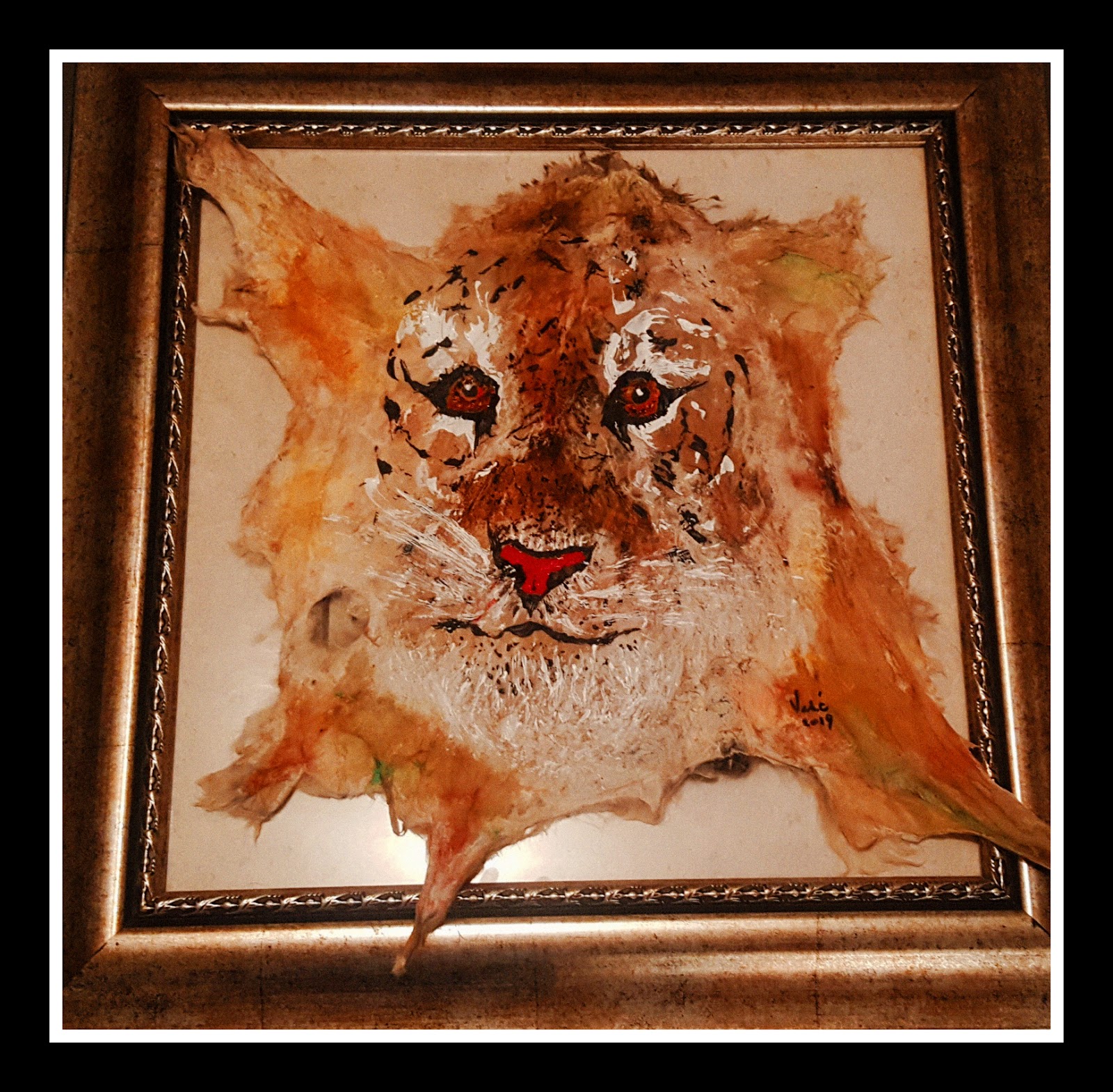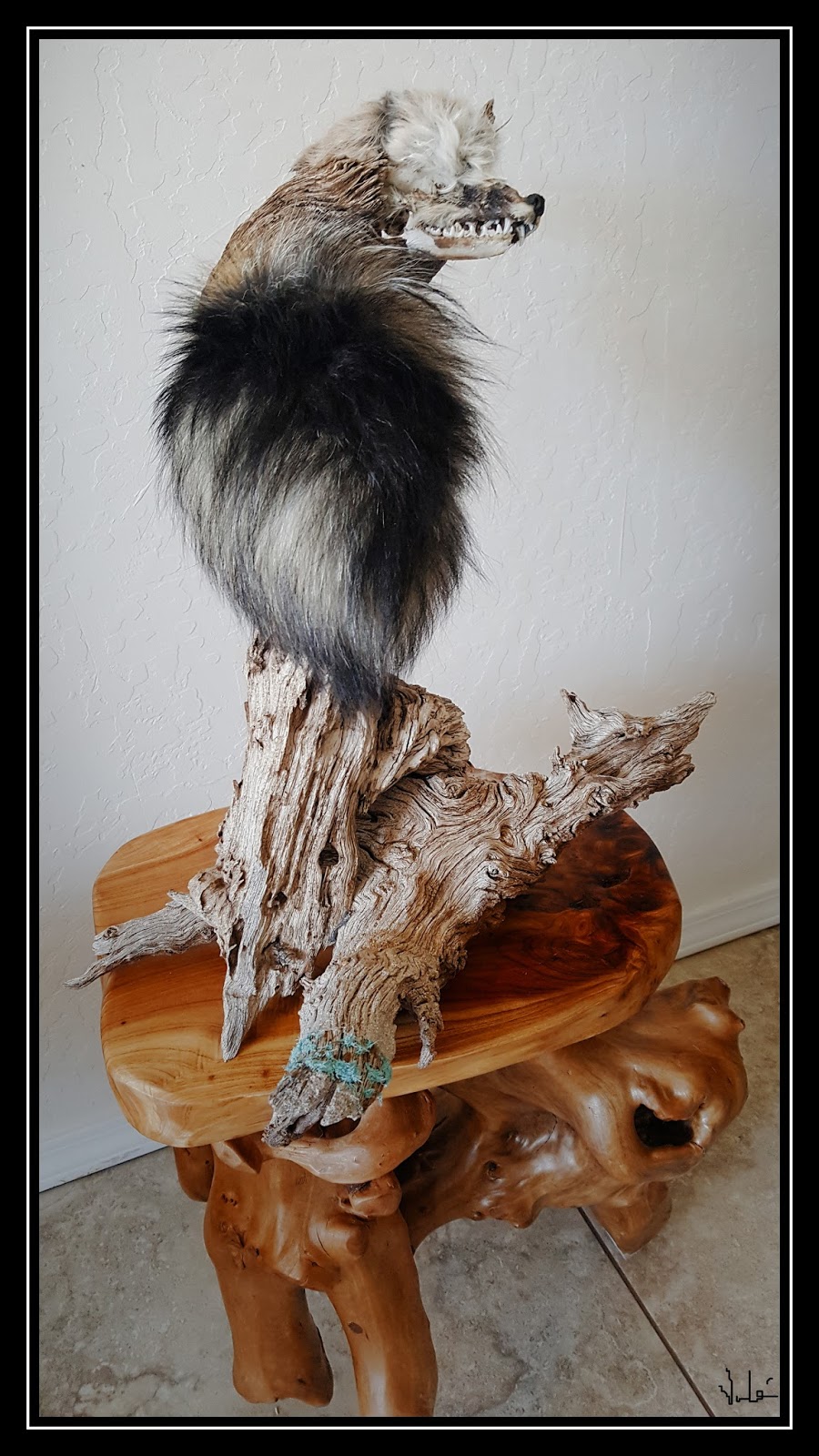It is a Poor Craftsman Who Blames His Tools.
When I took my first roll of 35mm film with a 1954
Soviet Kiev camera (a genuine Contax made with parts confiscated from Dresden
during the WWII and renamed as Kiev), I took it to a small photography shop to be developed. I
remember the phrase painted above the darkroom room:
“It’s a poor craftsman who blames his tools”
And that has stayed with me through the various
genres of art work I have tackled in the past 50 years.
… Painting on animal hide, especially hare hide, is
one of my favorite modes of expression. In part because hare hide is never smooth
leather – it has texture, veins, colour and a shape resulting from how the hide
was harvested.
In other words the tool I use in lieu of a canvas
has its own story and suggestions already before I start painting.
So, I spend a little bit of time “reading” that
story and often the painting motif or subject derives from what the hare hide
is ready to participate in the process with me.
… I like painting tigers and cougars on hide. It
seems a harmony of materials, texture and individual characters. So, in the
past I have painted “old” tigers when the hide was of a color and shade that
seemed to promote the passage of time. I have also painted tigers at their
prime, at least how I anthropomorphically would translate a tiger’s facial
expression to age.
Here are examples of these two variations in tiger
face painting:
… As I was looking through the preserved hare hides
from the fall, one jumped at me as a good canvas for a happy and mature tiger.
Why? I am not sure. Perhaps the various colours and especially the darker ones
where the snout of the tiger would be.
Ok, so I drew the boundaries of where the face would
be and started by placing the tip of the nose and the eyes. As always all my
painting is with a “knife” which actually is the broken blade of a letter
opener… And I use a combination of acrylic and oil paint to accommodate the
hides spots where the oil would be absorbed or not.
Here is the very start of the project – not much
there to define a tiger, yet:
After a few touches of my paining knife, the happy tiger
came to life. I decided to exaggerate the lips a bit to accentuate that feeling
of being at peace:
And the painting was completed with the addition of
whiskers as shown at the top of this page. While I have a frame for it, the
paint needs to dry for a short while. Usually it is the oil of the nose tip
that touches the frames glass and smears it if framed too soon…
August 4, 2019
©Vahé A. Kazandjian, 2019






Comments
Post a Comment